

Read Ep. 27 | Show Notes
Subscribe Below to Receive the TKV Newsletter in Your Inbox

I was listening to EP #714 of the Rich Roll Podcast with Dr. Robynne Chutkan (IG: @gutbliss) during my run yesterday and was absolutely blown away by Dr. Chutkan’s ability to deliver such a powerful message about taking ownership of our health in such a nuanced and compassionate way. Not surprisingly, it made me think of EP 192, Dr. Chutkan’s first appearance on the RRP, in connection with her second book, The Microbiome Solution. That book, together with that podcast episode, changed my life. This led me to consider what other episodes of Rich’s podcast have left that kind of indelible impression and I thought it might be fun to cover that in this week’s newsletter.
So, without further ado, here’s why:
- I started adding beans to my kimchi chigae
- I stopped taking showers every day
- I gave up a career in corporate America
Why I Add Beans to my Kimchi Chigae.
Some of you are retching at the “cultural misappropriation” embodied in the addition of black beans to my kimchi chigae, and some of you are going, “what is kimchi chigae?” Let’s answer the latter, since it’s a lot easier. Kimchi chigae is a popular Korean stew made out of–you guessed it–kimchi! Kimchi chigae has been around for hundreds of years, dating back to the 1500s. Suffice it to say, adding black beans to it is probably not the only deviation from the “original” and “authentic” recipe over the past 500 years…!
While the word “kimchi” refers to a variety of pickled vegetables (cabbage, cucumbers, radishes, etc.), spicy and not spicy, and at different stages of fermentation, kimchi chigae is typically prepared with spicy Napa cabbage kimchi that is fermented past the point that most people would enjoy eating raw. Got yourself a jar of really smelly kimchi? Time to make kimchi chigae!
It turns out that the concentrated “kimchiness” of overripe kimchi is the best ingredient for a rich, dynamic stew. One of the things I love so much about Korean food is how the Buddhist ethos against waste embeds itself in so much of our cuisine. “Kimchifying” a vegetable is, of course, a mechanism for ensuring its longevity, providing enough food during the winter months, when cabbage doesn’t grow. But even when pickled cabbage gets a little too funky (it won’t spoil–it just gets really pungent), we come up with a way to make something delicious out of that too!!
So, here’s why I add black beans to my kimchi chigae:
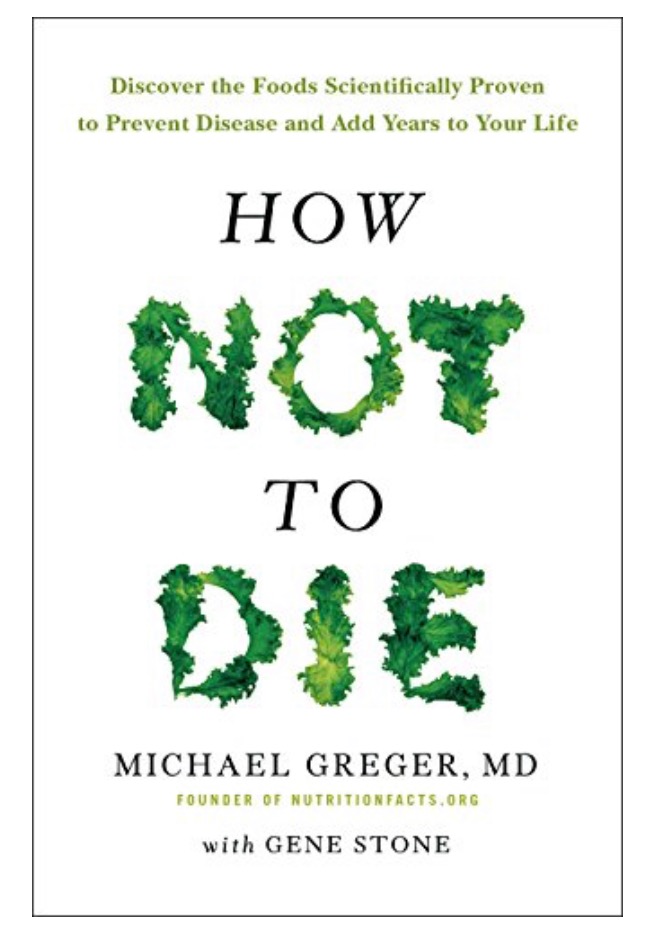
Dr. Michael Greger is the author of one of my favorite books of all time, How Not to Die (which I’ve read front to back like 5 times). In it, he provides folks with a handy dandy list of foods we should all aspire to eat on a daily basis. I discovered Dr. Greger by listening to EP 199 of the RRP and instantly downloaded his book. I then proceeded to listen to the audible version on just about every long run that following summer, because it inspired me to take control of my body while I was physically taking control over my body!
Of all the different foods Dr. Greger covers in his book (and YouTube channel), the two that stood out to me due to sheer repetition were (a) turmeric and (b) beans. The former due to its powerful anti-inflammatory properties (and no, curcumin supplements are not going to cut it, as Dr. Greger emphasizes), and the latter because of their high fiber content (1/2 cup has nearly as much fiber (7g) as it does protein (8g)).
Personally, I think it’s a little ambitious to try and incorporate all 12 things on Dr. Greger’s list into my daily diet, but, as Dr. Greger often likes to say, he’s not telling us what to do, so much as giving us the facts so that we can then figure out what we want to do. I like to pick a couple off his list to work on over a few weeks, and beans have been my favorite.
Other fun facts I picked up from Dr. Greger’s book that have seeped into my daily life:
- Color = antioxidants. Therefore, pick a darker version of your favorite veggies (e.g., purple sweet potatoes, red cabbage, red onion, etc.) for more nutrition and cancer-fighting bang for your buck.
- The peel is where it’s at. Don’t be in such a rush to peel your potatoes, carrots, and other veggies. Not only is that where a lot of the flavor resides (that comes from my Aunt, not from Dr. Greger), it’s where much of the nutrients and fiber hides. Just give your veggies a really good scrub and keep those skins!
- Chop that broccoli. So, there is some truth to the notion that when you cook vegetables, in many cases, you will substantially reduce its nutritional impact. But, Dr. Greger imparts a wonderful “hack” (such a good word for this tip) when it comes to broccoli: chop it up 35-45 minutes in advance of cooking, and you will retain far more of the green’s nutritious value than if you were to cook immediately. Don’t have time to chop so far in advance? Add a bit of mustard powder and you’re good to go, too!
- Nuts are not the culprit. Nuts are definitely calorically dense and as a result, I think many people are worried they’ll lead to unwanted weight gain. While Dr. Greger doesn’t suggest eating them by the cartful every day, they are on his Daily Dozen for a reason–they’re full of healthy fats that will curb hunger pangs and those wretched “munchies” that got really freaking aggressive during quarantine (and haven’t backed off since…!). I like to keep a measuring cup next to my bag of nuts to make sure I don’t overdo it (especially if they’re salted), BUT, I NEVER feel bad about snacking on almonds, cashews, Brazil nuts, etc. because as Dr. Greger explains, the notion that people are gaining weight from eating nuts is, well, nuts.
You can find RRP 199 with Dr. Greger here and a recipe for my Kimchi Chigae with Black Beans here!
Why I Stopped Showering Every Day.
You may remember back in 2021 when Mila Kunis and Ashton Kutcher were literally subjected to accusations of child abuse because they admitted they don’t bathe their children everyday. According to Mila Kunis, this was simply an extrapolation of her own daily hygiene habits–she never showered every day because, growing up, she didn’t have regular access to hot water. So, I decided, at the time, I would refrain from tweeting about the subject, though I have very strong and specific opinions on daily showering.
I showered every day for most of my life. In fact, there were many days when I showered twice, because I’ve lived a fairly active life over the past decade.
And then, I heard Dr. Chutkan, author of The Microbiome Solution, on the RRP in 2016 (a few months after it was recorded).
And now, yes, I am the family member that everyone likes to joke about for not showering.
Don’t get me wrong–it’s not like I never shower. I just don’t shower every day. And, according to Dr. Chutkan, here’s why:
You may know that the microbiome is made up of hundreds of trillions of bacteria, viruses, fungi, and protozoa that live inside and on the human body. If this is your first time encountering this fact, don’t freak out. Germs can be good for you, I promise. They ward off diseases, help you get over illnesses faster, and can even make you feel less sad about a bad breakup.
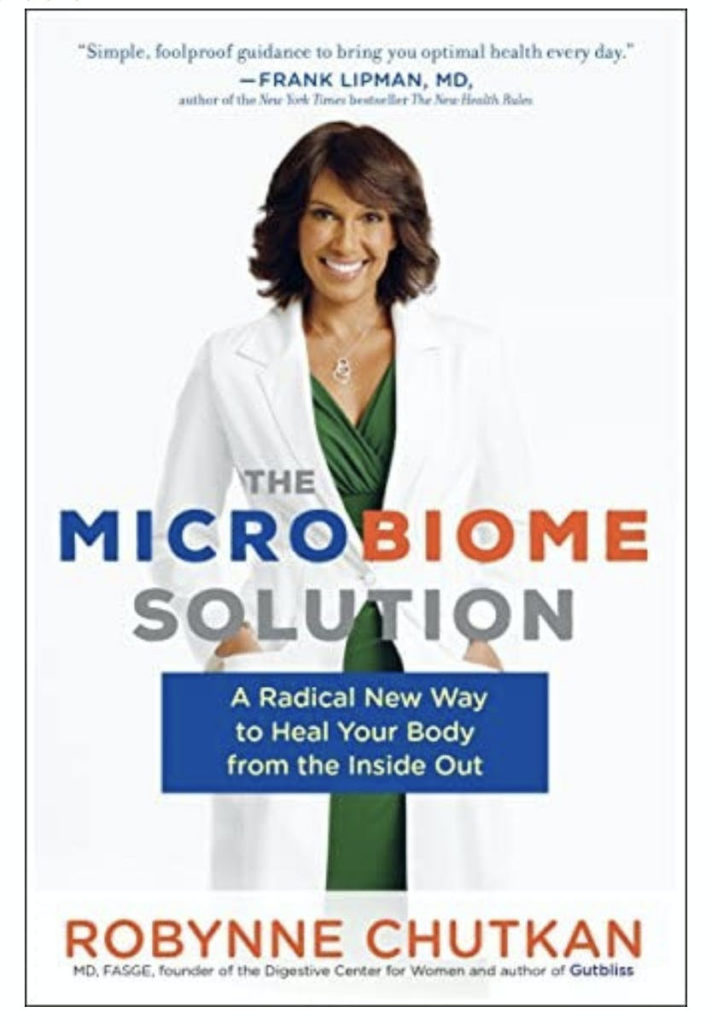
You may also know that there is a growing body of research (literally grows exponentially on a daily basis) that continues to clarify the critical role the microbiome plays in the health and happiness of the human body. Studies on the microbiome all seem to conclude that the microbiome is, indeed, the key to long life and well-being.
While many people believe that the microbiome is interchangeable with “the gut,” the truth is that the microbiome doesn’t just reside inside us, but also on us. There are literally millions of bacteria that compose the “skin microbiota” living on our epidermis. Thus, when we shower too long, or too hot, or with too much product, we run the risk of disrupting the fragile ecosystem that regulates our health and immune system.
According to Dr. Chutkan, bathing every other day is more than enough and even once a week is sufficient if you’re not an excessive sweater. When you do shower, you should keep it to less than 10 minutes and avoid using antibacterial cleansers all over your body. Why? Because antibacterial soaps are indiscriminating. It’s not like Dial’s R&D department was like, “let’s make a soap that’s so smart it can distinguish between the good bacteria and the bad bacteria and only kill off the latter.” That kind of soap doesn’t really exist and even if it did, you’re not going to find it at Target. Accordingly, you are not just killing the “bad germs” that you may have picked up when you bought the soap at Target, you’re also killing all the good germs, the kind that might prevent you from getting that cold going around the office. As Dr. Chutkan put it:
“Dirt doesn’t cause disease – but repeatedly killing off good bacteria on your skin may actually harm our immunity.”
At least one study in the US confirms Dr. Chutkan’s thoughts on over-showering.
I’m not a big believer in anecdotal evidence (which is why I linked the study above), but I will say, ever since I reduced the amount of time I spend underneath the shower head, I’ve only gotten sick once (in 5 years) and it was COVID (which I managed to avoid for 2.5 years). This is despite the fact that I live with someone who gets sick every few months (who also happens to shower multiple times a day).
Other fun facts I learned from Dr. Chutkan:
- During the 1918 pandemic, soldiers who slept outside recovered at a significantly higher rate than the officers who slept in tents. Accordingly, there is some thought that exposing our bodies to nature can have a direct impact on our immune system.
- Mucus can be good! Mucus is designed to be protective, a literal barrier between your body and viruses. In fact, according to Dr. Chutkan, when we take cough syrups and other medications that cause us to “dry things out,” there’s a chance the cold, flu, or whatever is causing your cough and congestion will actually linger or get worse. One of the most useful things I learned from Dr. Chutkan is that sometimes it’s important to get comfortable with being a little uncomfortable, instead of instantly reaching for relief.
- Speaking of sweet relief, Motrin (or other NSAIDs) should, if possible, be taken in moderation. This is probably not news to many of you, as I’m sure I’m not the only one who gets tummy aches after popping some Ibuprofen. Even a moderate dosage (e.g., 800 mg, which is what my oral surgeon prescribed after getting my wisdom teeth pulled) has been known to cause ulcers and can thus disrupt the health of your microbiome. Accordingly, you should take the lowest dosage possible for the smallest amount of time.
Obviously, neither Dr. Chutkan nor I am suggesting that you should ever supersede your physician’s advice with what you find on the interwebs or what you read in a book–your health is your health, after all. However, I found these little tidbits of information incredibly eye-opening and, at the very least, provoked more investigation. You can listen to Dr. Chutkan’s first RRP appearance here and her more recent conversation with Rich here. Enjoy!
Why I Left My Corporate Job.
I’ve already written and talked about this so often, I won’t repeat too much here. I will simply say that I was listening to RRP 466 with David Epstein, NYT Bestselling author of Range, and I started to believe, ever so slowly, that perhaps I wasn’t too old to dream again. I was in my late 30s and David’s inspiring discussion of all the people who found success later in life forced me to confront the possibility of leaving my law firm job with the kind of honesty I hadn’t been capable of before then. I discovered that while the thought of leaving the comforts of a predictable paycheck was indeed terrifying, the idea of living out the rest of my life with the road stretching straight out ahead of me until it pierced the horizon–with no bend, no deviation, no nothing…
That scared me a whole heckuva lot more.
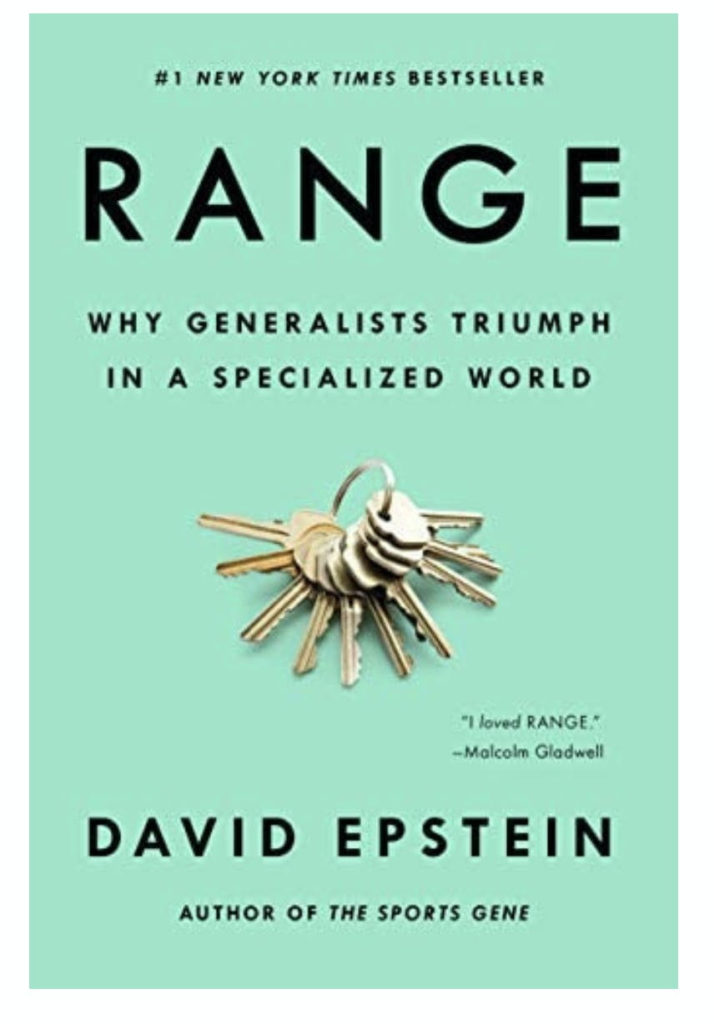
But I think what really uncuffed me from my fear was the idea that I was allowed to fail. Over and over and over. As we talked about a few weeks ago (“The Art of Failing“), one of the most electrifying parts of David’s book is not that it gives us permission to fail, but actually suggests that repeated failure is an indispensable part of the formula for success. All of a sudden, running down a rabbit hole that led to a “dead end” didn’t sound so unappealing to me anymore. Dead ends aren’t a waste of time. You will learn from them–about where not to go next (at a minimum), and, just as critically, why you are chasing this particular rabbit. In other words, the person you become when you climb out of that rabbit hole won’t be the same person who went in, and that incremental growth is precisely what you need in order to achieve the kind of purpose you seek.
I will never forget the moment I squarely faced off with the idea of quitting my full time gig at the Firm. I was sitting at my desk in early November 2020. My phone was ringing off the hook with new clients on the largest crypto bankruptcy that had ever been filed (at that time) under chapter 11 of the bankruptcy code. I was one of the few persons in the world who knew a thing or two about both crypto and chapter 11 and it seemed all the hard work I’d put into this strange “side project” (i.e., writing extensively about blockchain) was finally paying off. At the same time, my inbox was pinging me every 3 minutes with emails from an editor at The Atlantic, who was working with me and my co-author, Brad Moss, on my very first op-ed on a topic in which I not only held some expertise, but some incredibly strong opinions. Meanwhile, I was on and off the phone with the Firm’s PR manager about my TikToks blowing up and exactly what I could and couldn’t post about on social media as a partner at a large law firm. I hadn’t felt this overwhelmed since the week before my first wedding, when a phone call from my wedding planner to remind me that my seating chart was due, while I was simultaneously trying to finish a memo and preparing to defend my first deposition, pushed me to put my head down on my desk and burst into tears.
I was talking to a Bitcoin hodler while trying to type up a response to The Atlantic editor when I remember thinking to myself,
“I can no longer do both The Korean Vegan and be a partner at the same time. One of these things has to go.”
Later that day, the Op Ed was published. And seeing my name printed next to something that I felt was so overtly in support of justice, fairness, and what was right…
I won’t say it was then and there that I decided to take on David’s hypothesis, but it was the flick of the finger that started a cascade of dominos that led straight to Southern California, where I would months later meet Rich Roll in person, who would ask me:
“Why are you still a lawyer?”
You can listen to RRP 466 with David Epstein here.
Ask Joanne
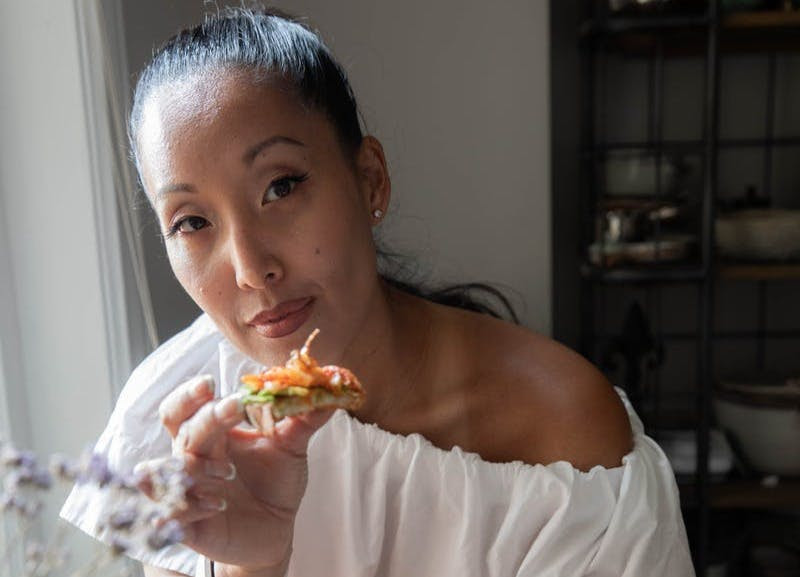
Hello Joanne, I’ve developed a crush on a man I work with. We became great friends for a year and in February, we became intimate. I was over the moon, I thought he loved me. We used to cuddle, and hug and I even made him something cool for his birthday. However, one day he said I became too attached. That he couldn’t love me because i was too young. He’s 30, and I’m 20. I remember sobbing in his car for what felt like forever. He said he still wanted to be intimate, but as friends. I agreed, thinking if i gave him what he wanted he’d eventually fall in love with me like I did him. However he just told me we couldn’t be intimate anymore, because he’s starting to date another girl. And this just felt like it ripped me apart. Having to keep my cool while thinking why didn’t we go on dates, why doesn’t he love me for me? I feel jealous of a woman I don’t even know. I just want to know how to dispel these terrible feelings I have. I just feel so sad and worthless. How can I be kinder to myself and move on? -Layla
Layla,
First of all, I am so sorry that you are going through this. There’s no point in sugarcoating it: heartbreak of this kind is painful and can sometimes last a lot longer than you’d like. When someone breaks up with you, it’s not unlike when someone you care about passes away, particularly if the dissolution of your relationship comes unexpectedly. Even if the object of your affection is still alive, the relationship you had (and all the hopes you had for that relationship) has, for all intents and purposes, died. Therefore, I think it might be helpful to view this through that lens: mourning.
What would you tell a good friend if they came to you and told you that someone they loved passed away? Would you judge them? Criticize them for causing the death of their loved one? Would you advise them to think, over and over, about what they could have done to prevent that death? No. Of course not. And therefore, you should stop doing the same to yourself. You are not “worthless” because this relationship didn’t work out. And, I gotta tell ya–there are probably dozens of people reading your question (myself included) who might have done the exact same thing you did: agree to have an intimate relationship with a person “as friends” with the hope that they’d eventually come around to seeing you as more than that.
Practically speaking, I’ve found the most effective way to be kinder to myself is literally to think of myself as a separate person. Once more, I suggest recording your thoughts via voice memos or even a voice recording journal. Everyone has experienced the “oh my god, that’s what I sound like??” phenomenon, and I think it’s because of how alien our own voices sound to us that we are able to achieve the level of detachment necessary to “be kinder” to ourselves. After listening to you voice your thoughts out loud, talk back to yourself in the same way you would talk to your best friend, little sister, or someone else who looks up to you for protection and empathy.
I also think that while it’s important to do what feels right (i.e., sit in your room by yourself, watch Anne of Green Gables, eat chocolate, etc.), it’s sometimes equally important to do things that feel hard. Go out for a walk–even if you don’t feel like it. Get dressed up and go out with your friends–even if you don’t feel like it. Cook something you love to eat and then invite a good friend to eat it with you–even if you don’t feel like it. Sometimes, even if you don’t feel particularly nurturing towards yourself, forcing yourself to “pretend” that you do will actually stimulate the emotional fortitude you previously lacked.
Finally, start doing the things that make you Layla. Before you met this person, what did you like to do for fun? Who did you talk and text with during your free time? What was your favorite thing to watch on TV? What are the things you’re really good at? What are the things that make you so valuable to your family and friends? Why do they like hanging out with you so much? Why do they find you indispensable? Whether you write down or voice-note the answers to these questions, it’s also important to act on them. If what you’ve always enjoyed doing is surfing, go out and surf (even if you don’t feel like it at first). If you like watching mysteries, get on Netflix and watch Vatican Girl for the next few hours. If you’re the girl that your friends count on for being the life of the party, then, when you’re ready, throw that party. If you’re the girl that your friends lean on when things get tough, then, when you’re ready, pick up that phone and tell a friend, “Hey, I’m going through something right now, do you mind if I lean on you for a bit?” because we all know that being vulnerable, for people who are usually the sounding board or safety net, is the toughest thing we can do.
In other words, recovering from this breakup and dispelling the bad feelings associated with it begins by reacquainting yourself with you. Because somewhere in the throes of your romance, I think you may have lost a little bit of Layla and now is the time to find her. It will be difficult, ugly, and taxing at times, but, I promise Layla, the work you do right now, in these hard moments, will ensure that you will never, ever again accept a love that has you asking whether you are worthy of it. Instead, this work will help to ensure that your next love is one that is worthy of you.
Wishing you all the best.
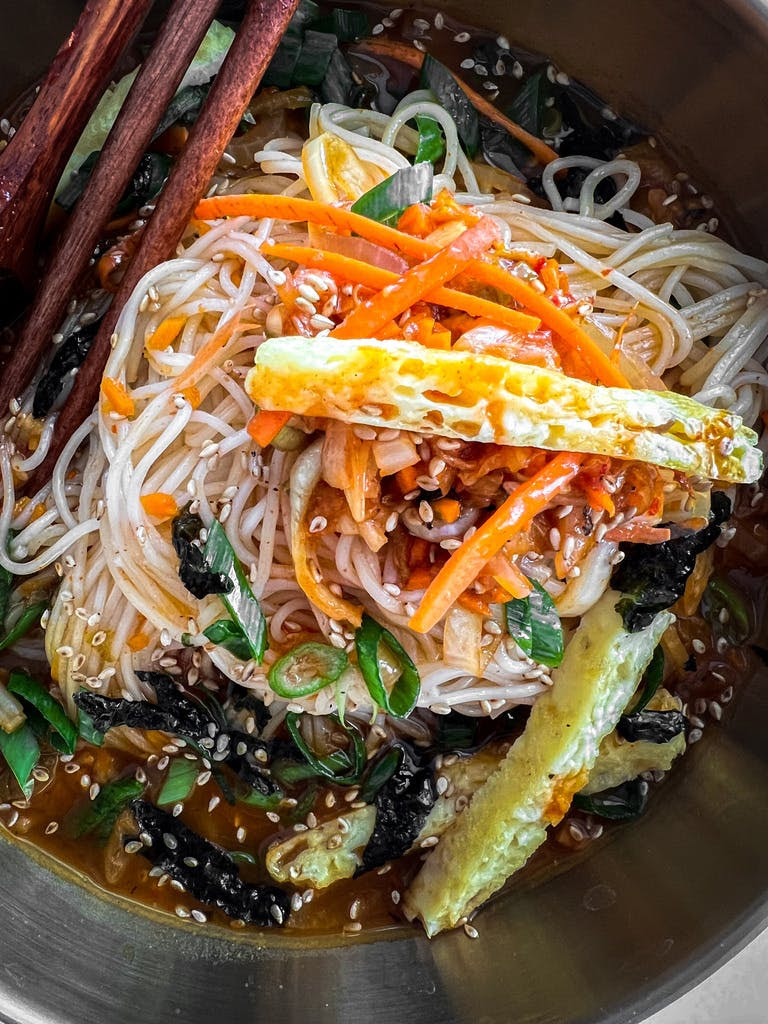
Updates/Random Things.
- What I’m Watching: So, we have watched a LOT of documentaries this past week, including The Vatican Girl on Netflix, which covers the disappearance of a young girl in Rome back in 1983, and whether or not the Vatican may have played a role. It was absolutely riveting and my husband finished the entire series in one night. The series was so well done, focusing primarily on interviews with the abductee’s older brother, who is incredibly well spoken and passionate. We also just started The Vow, a documentary series on HBOMax about the cult NXIVM. Anthony and I have already had a couple of bang out, deep conversations sparked by this show and for that alone, I think the show has already proved its value. Highly recommended!
- Signed Copies of The Korean Vegan Cookbook: I recently went to Now Serving LA–a bookstore that features only cookbooks–and signed their entire stock of The Korean Vegan Cookbook. It was such a great way to celebrate the book’s 1-year anniversary! If you’re interested in getting a head start on your holiday shopping, you can order your signed copy here for delivery!
- What I’m Cooking: This week, I wanted to make something soothing, delicious, and full of kimchi! So, I made kimchi noodles, but instead of making it cold, I made it hot. I started by developing a broth, very similar to how I would make kimchi chigae. Then, I added some cooked somyeon (or Korean style wheat noodles). I garnished it all with some JUST Egg, sesame seeds, green onions, and, of course, a little more kimchi! Will be adding it to the TKV Meal Planner this week, but you can check out the video here!
Parting Thoughts.
The past several days, I’ve been thinking a lot about the following question:
“How can I make the world a better place?”
This question takes on greater urgency as more and more people build (or purchase) platforms that reach far beyond my own, while having a vastly different definition of “better,” at best, or a determination to scar the world before they exit, at worst. It is true that “better for whom?” is a valid consideration when defining the shape of a “better world,” but it seems some of the planet’s most influential people are incapable of evaluating the “greater good” without also ensuring some (rather large) measure of self-gain. It would seem that all people (regardless of politics, religion, or creed) should agree that the preservation of life, nature, and intention is a worthy endeavor, and yet there are those that wield their immense influence to accelerate the Earth’s collision with actual destruction. All in all, the question “how can I make the world a better place” stops being an investigation of possibilities, but rather one of prevention:
“How can I make sure things don’t get worse?”
I am reminded of that scene from Jurassic Park where Jeff Goldblum’s character flirts with the female scientist via a “handsy” explanation of chaos theory–a premise that asserts that complex consequences can spring from seemingly simple systems. For example, however many times you’ve observed the way a particular ball bounces off the surface of your hardwood floors, at most, you’ll likely be able to predict only a few seconds of the ball’s trajectory and even final destination. There’s a temptation, then, to say, “eff it all–what’s the point of throwing the ball, if there’s no real way to predict exactly how it will bounce?”
But can’t that be a good thing too?
The point is, there is no way to always know where the small steps you take today will lead you tomorrow. What if the first person to melt an ice cube decided to quit before the temperature hit 32° F because the first 31 times “nothing” happened? We would all be stuck in the ice age! In the same way, even though it may be easier to believe that our individual actions bear little to no significance, we should take hope in knowing that it’s often the imperceptibly small impact (just like the invisible changes going on inside the ice cube) that can lead to life altering consequences.
Thus, in answer to the question, “How can I make the world a better place?” I have three words, my friends:
Don’t give up.
– Joanne
